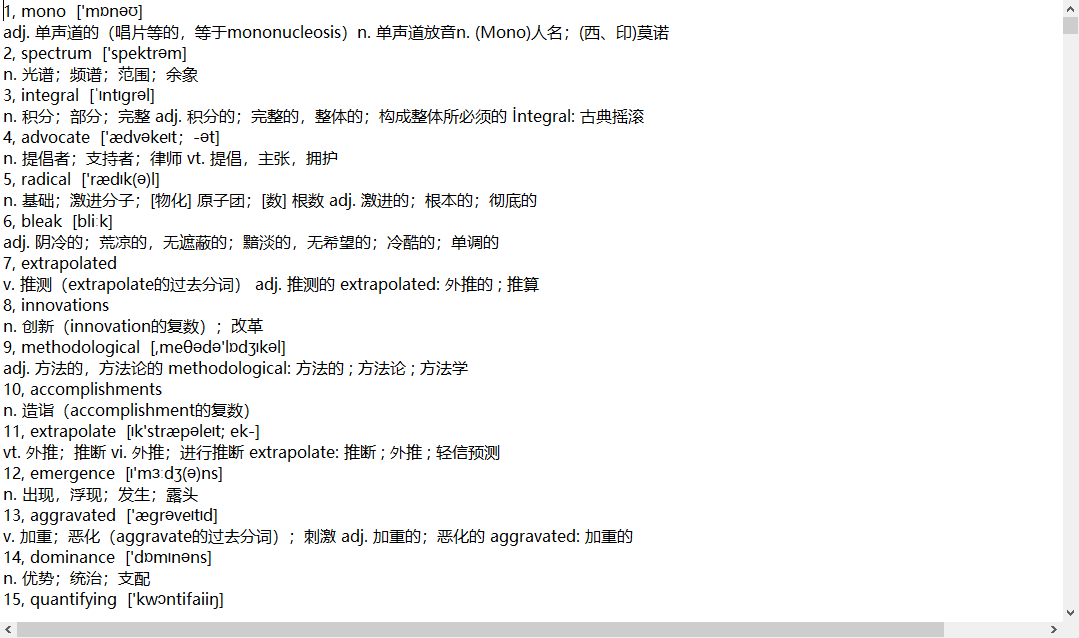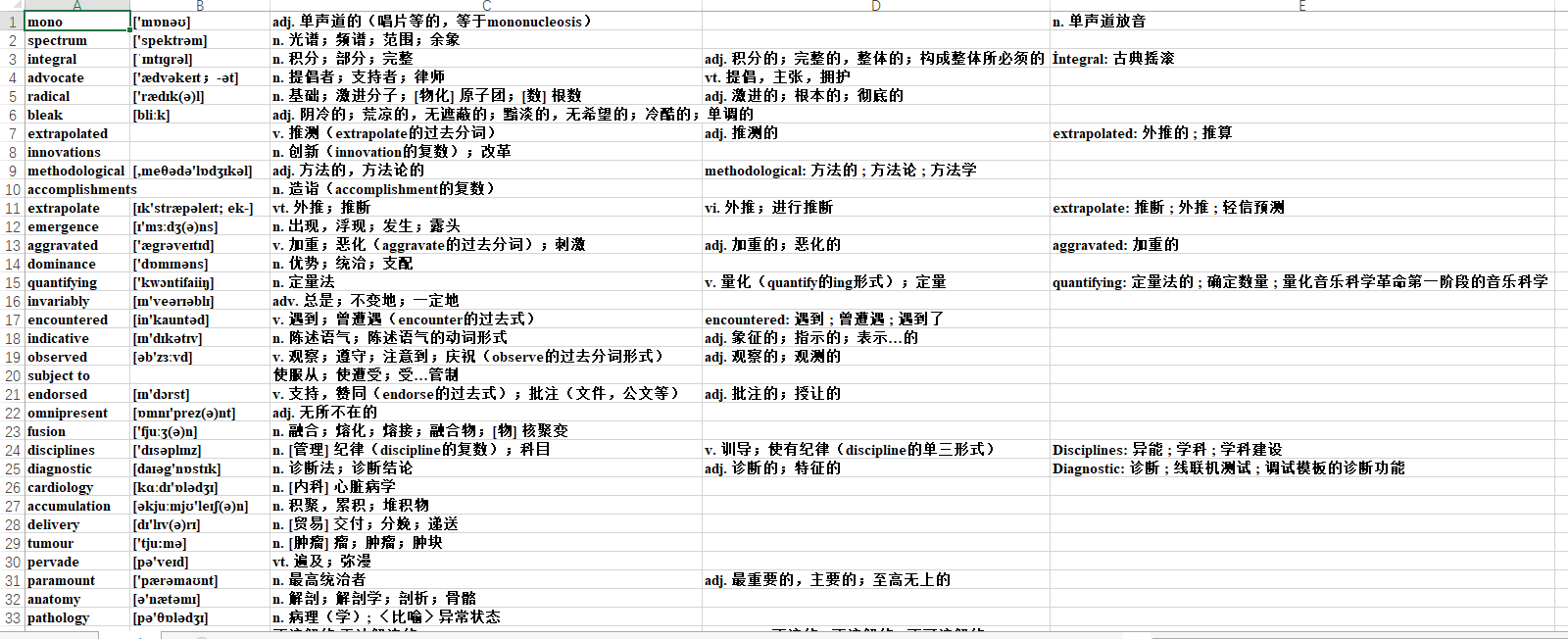生词本的导出




编码转换并且写入excel
import codecs
import xlwt
intlist = ['1','2','3','4','5','6','7','8','9','0']
worddict = {}
#{'word':[word,soundmark,[mean]]}
meanlist_ = []
meanlist = []
with open('./zzq.txt','r',encoding='utf-16') as wordfile:
while True :
wordline = wordfile.readline()
if(wordline):
if(wordline[0] in intlist):
word = wordline.split('[')[0].split(',')[1].strip()
if len(wordline.split('['))>3:
soundmark = ''
for soundmark_ in wordline.split('[')[1:]:
soundmark = soundmark +'['+soundmark_.strip()
elif len(wordline.split('['))>1:
soundmark = '['+wordline.split('[')[1].strip()
else:
soundmark = ''
worddict[word]=[word,soundmark,[]]
else:
if '人名' not in wordline:
worddict[word][2].append(wordline)
else:
pass
else:
break
#设置表格样式
def set_style(name,height,bold=False):
style = xlwt.XFStyle()
font = xlwt.Font()
font.name = name
font.bold = bold
font.color_index = 4
font.height = height
style.font = font
return style
# 写Excel
def write_excel(worddict):
f = xlwt.Workbook()
sheet1 = f.add_sheet('words',cell_overwrite_ok=True)
for item,word in enumerate( worddict):
sheet1.write(item,0,worddict[word][0],set_style('Times New Roman',220,True))
sheet1.write(item,1,worddict[word][1],set_style('Times New Roman',220,True))
for item2,meaning in enumerate( worddict[word][2]):
sheet1.write(item,2+item2,meaning,set_style('Times New Roman',220,True))
f.save('word.xls')
write_excel(worddict)
结果
